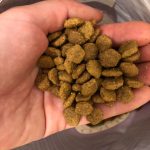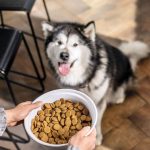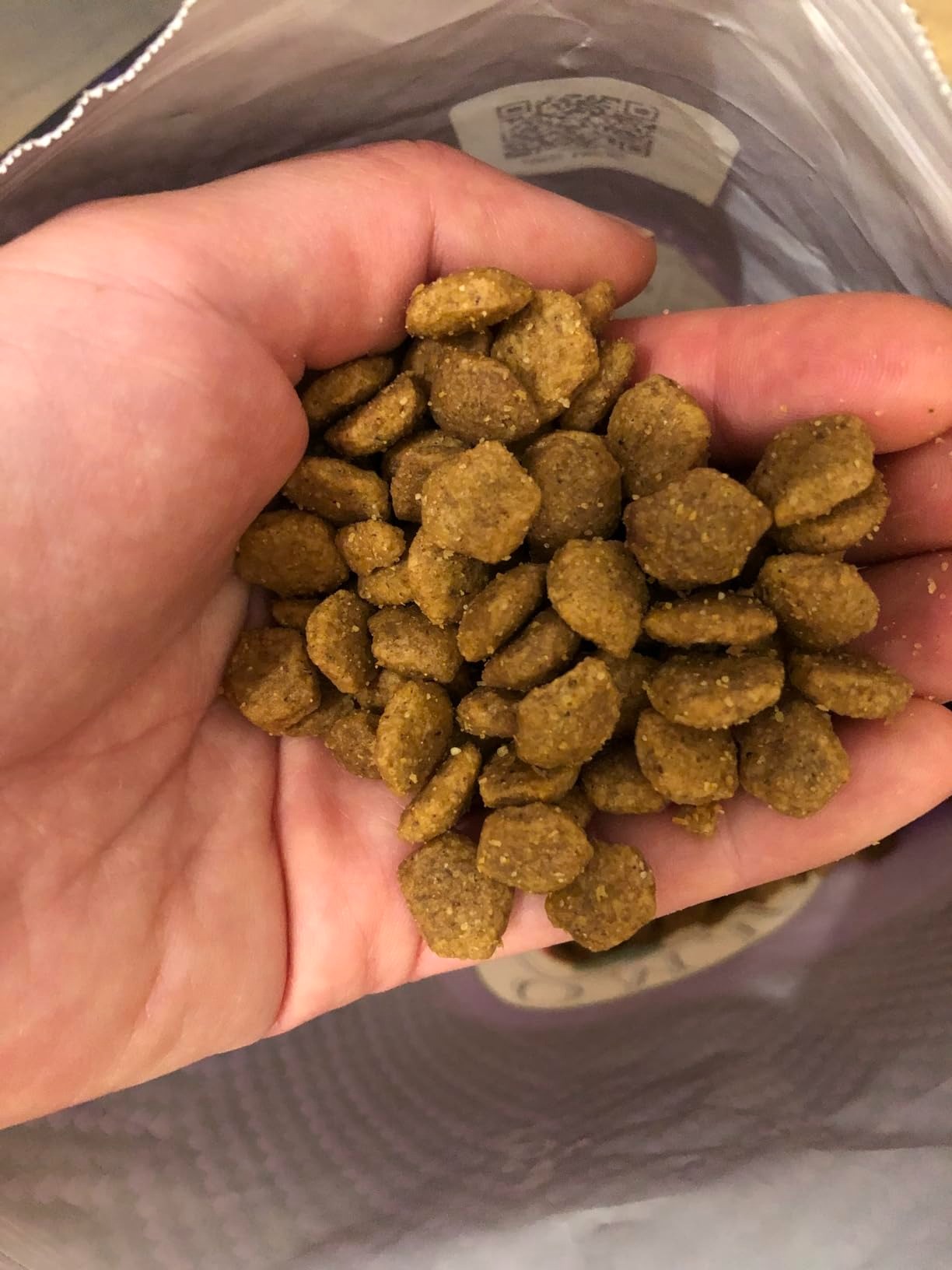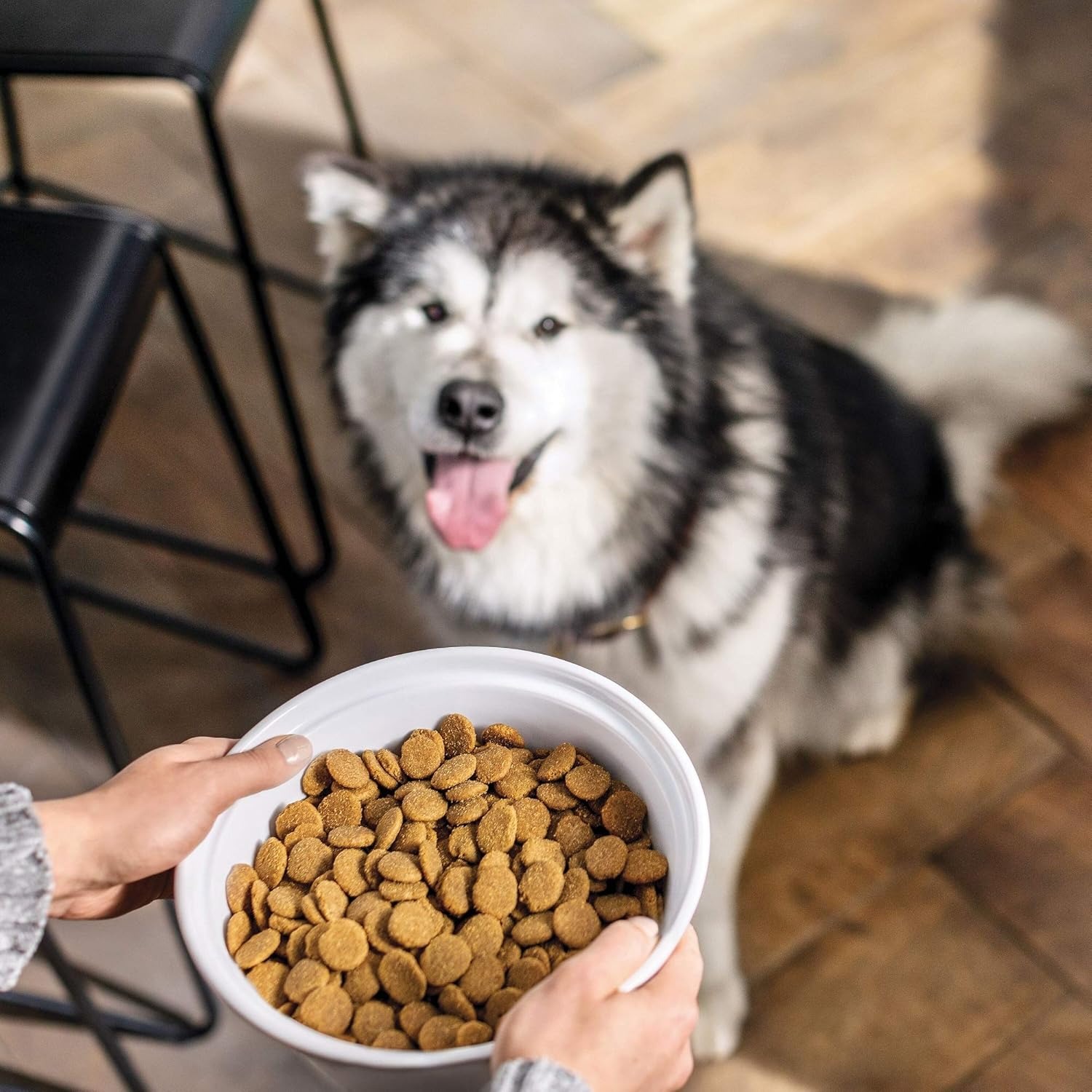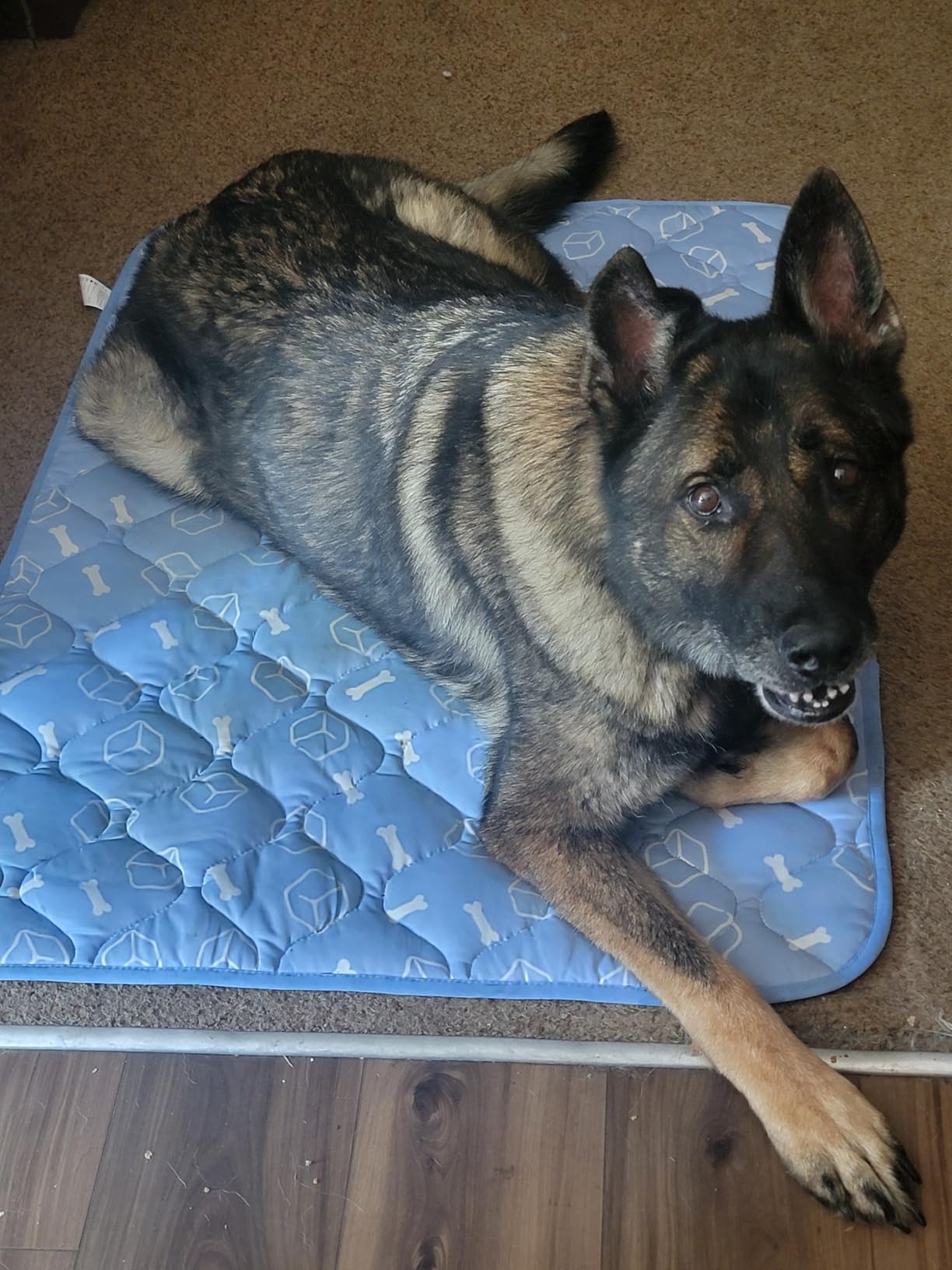Introduction
What to feed a dog with inflammatory bowel disease is a question many pet owners ask when their dog is diagnosed with this condition. Inflammatory bowel disease (IBD) is a common gastrointestinal issue that affects the digestive system of dogs. It causes symptoms like vomiting, diarrhea, weight loss, and poor nutrient absorption.
This article will guide you through what to feed a dog with inflammatory bowel disease and explain how diet plays a key role in managing the condition. We’ll cover the best food choices, how to avoid trigger ingredients, and what to look for in a dog food label. By the end, you’ll have a clear understanding of what to feed a dog with inflammatory bowel disease and how to keep your dog healthy and comfortable.
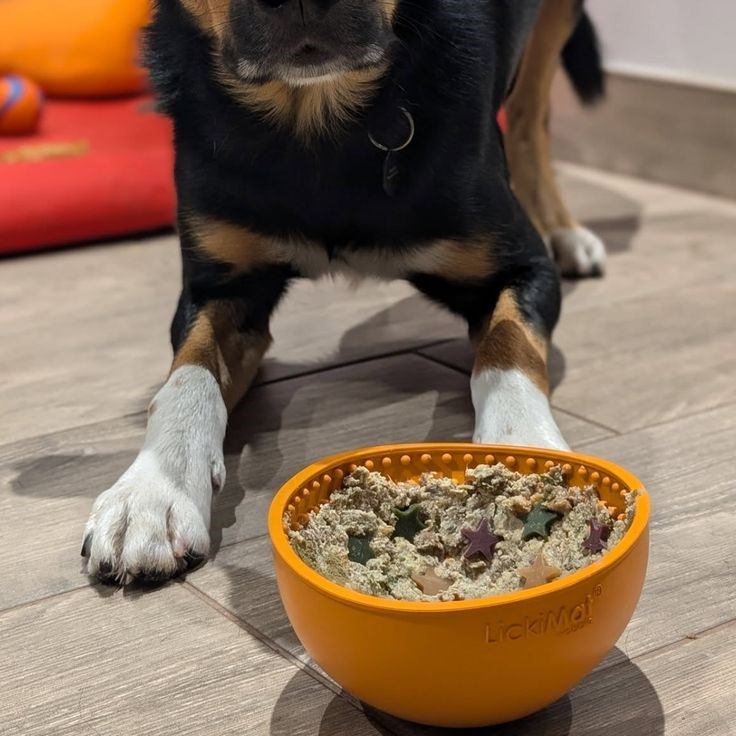
Understanding Inflammatory Bowel Disease in Dogs
Inflammatory bowel disease (IBD) is a long-term condition that causes inflammation in the digestive tract of dogs. This inflammation can lead to frequent vomiting, diarrhea, and discomfort. The exact cause of IBD is not always clear, but it often involves an abnormal immune response to certain foods or bacteria in the gut.
It’s important to understand what to feed a dog with inflammatory bowel disease because diet has a major impact on symptom management. A proper diet can reduce inflammation, improve digestion, and help your dog feel better. However, some foods may worsen the condition, so choosing the right meals is essential.
If your dog has IBD, you should work closely with your vet to create a diet plan that suits their needs. A well-balanced diet can make a big difference in your dog’s quality of life. With the right food choices, you can help your dog manage this condition more effectively.
What to Feed a Dog with Inflammatory Bowel Disease
Choosing the right food for a dog with what to feed a dog with inflammatory bowel disease requires careful consideration. You should focus on high-quality, easily digestible ingredients that support gut health. Lean proteins like chicken, turkey, or fish are usually a good choice. These proteins are less likely to irritate the digestive system.
You should also include low-fat options to reduce strain on the stomach. Avoid high-fat meats, dairy products, and processed foods, as they can worsen symptoms. Instead, opt for simple, natural ingredients that are easy to digest.
Foods rich in fiber can also help regulate digestion. Cooked vegetables like carrots or pumpkin are gentle on the stomach and provide necessary nutrients. However, you should avoid raw vegetables, as they can be hard to digest for a dog with IBD.
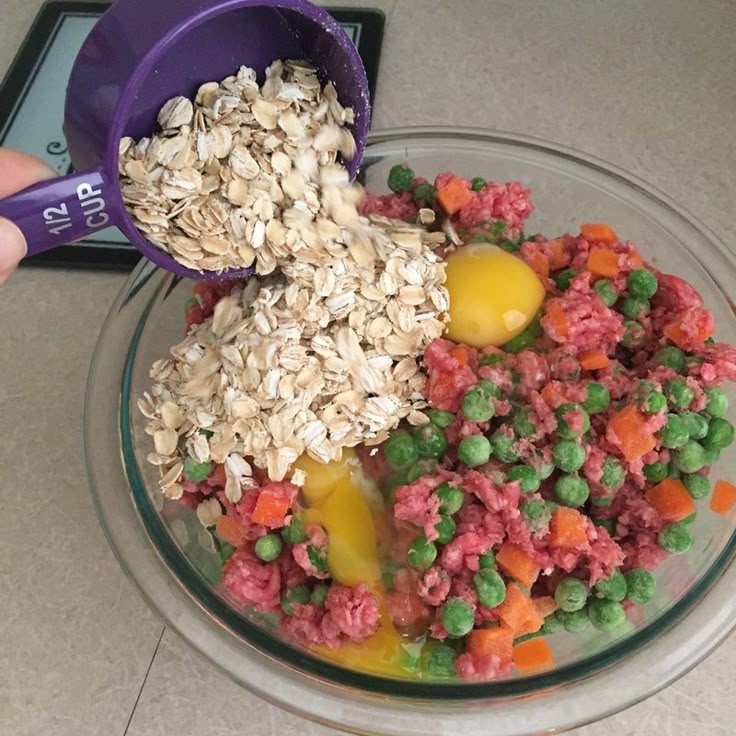
In addition, you should look for hypoallergenic or limited-ingredient diets. These foods reduce the risk of triggering an allergic reaction, which can worsen inflammation. Always read labels carefully and avoid any artificial additives or fillers.
By making smart food choices, you can help your dog manage what to feed a dog with inflammatory bowel disease and improve their overall health.
Best Foods for Dogs with Inflammatory Bowel Disease
The best foods for dogs with what to feed a dog with inflammatory bowel disease are those that are easy to digest and promote gut health. Lean proteins such as boiled chicken, turkey, or lamb are excellent choices. They provide necessary nutrients without causing irritation.
Vegetables like cooked carrots, sweet potatoes, and pumpkin are also great options. They add fiber and help regulate digestion. These foods are gentle on the stomach and can ease symptoms like bloating and constipation.
You should also consider feeding your dog a bland diet during flare-ups. A simple meal of rice and boiled chicken can give the digestive system a break and help reduce inflammation. This approach is often recommended by vets for short-term relief.
Avoiding fatty foods, dairy, and grains like wheat or corn is crucial. These ingredients can trigger digestive issues and make the condition worse. Stick to simple, clean ingredients that support your dog’s recovery.
With the right food choices, you can help your dog manage what to feed a dog with inflammatory bowel disease and feel more comfortable.
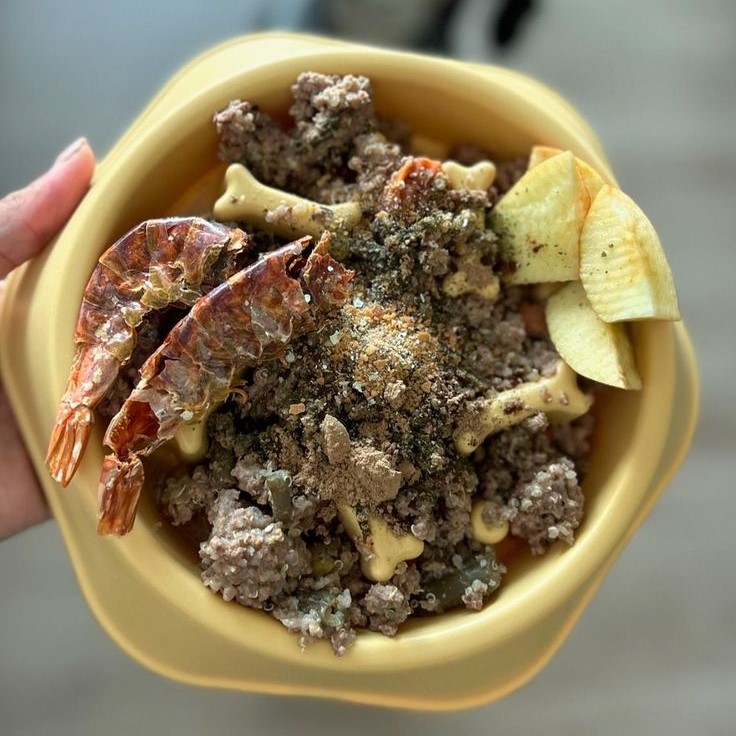
Foods to Avoid for Dogs with Inflammatory Bowel Disease
Certain foods can make what to feed a dog with inflammatory bowel disease even harder. You should avoid high-fat foods like bacon, sausage, and fried items. These foods can cause severe digestive upset and worsen symptoms.
Dairy products are another common trigger. Many dogs with IBD are lactose intolerant, and consuming milk or cheese can lead to gas, bloating, and diarrhea. It’s best to avoid these altogether.
Grains like wheat, corn, and soy are also problematic. These ingredients can cause allergies or sensitivities, leading to more inflammation. Look for grain-free options instead.
Processed foods, artificial preservatives, and high-sodium snacks should also be avoided. These items can irritate the gut and make the condition worse. Opt for natural, whole-food-based meals whenever possible.
By avoiding these foods, you can help your dog manage what to feed a dog with inflammatory bowel disease and reduce the frequency of flare-ups.
How to Manage Your Dog’s Diet with IBD
Managing your dog’s diet with what to feed a dog with inflammatory bowel disease involves consistency and careful planning. You should start by working with your vet to determine the best food for your dog’s specific needs. They may recommend a prescription diet or suggest a homemade recipe.
I recommend feeding your dog small, frequent meals throughout the day. This helps prevent overloading the digestive system and reduces the chance of flare-ups. Make sure each meal is balanced and includes protein, fiber, and healthy fats.
I also suggest keeping a food journal to track what your dog eats and how they react. This can help you identify any ingredients that might be causing problems. If your dog shows signs of discomfort after eating a certain food, stop feeding it immediately.
I advise against changing your dog’s diet too quickly. Sudden changes can cause more stress on the digestive system. Instead, introduce new foods gradually and monitor your dog’s response.
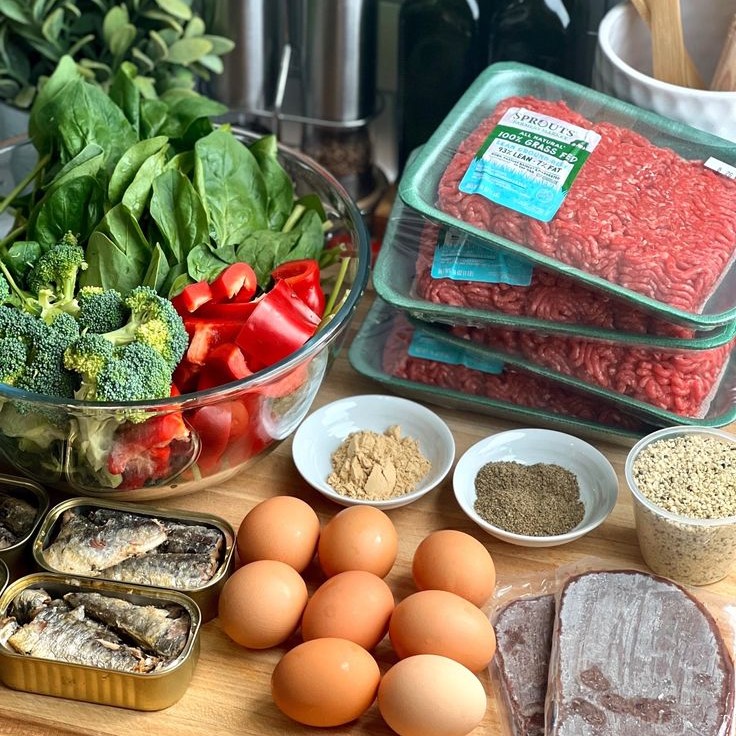
By following these steps, you can manage what to feed a dog with inflammatory bowel disease and improve your dog’s overall health.
Choosing the Right Commercial Dog Food for IBD
When selecting commercial dog food for what to feed a dog with inflammatory bowel disease, look for options that are low in fat and high in fiber. These foods are easier to digest and support a healthy gut. Avoid anything with fillers, artificial flavors, or excessive sugar.
I recommend looking for dog foods labeled as “hypoallergenic” or “limited ingredient.” These types of food contain fewer potential allergens and are less likely to cause digestive upset. Brands like Hill’s Prescription Diet or Royal Canin offer specialized formulas for dogs with sensitive stomachs.
I also suggest checking the ingredient list. Avoid foods with chicken by-products, corn, wheat, and soy. These ingredients can trigger inflammation and worsen symptoms.
I encourage you to consult your vet before switching to a new brand. They can help you find the best option based on your dog’s health and dietary needs.
By choosing the right commercial food, you can support your dog’s health and make what to feed a dog with inflammatory bowel disease easier to manage.
Tips for Feeding a Dog with Inflammatory Bowel Disease
Feeding a dog with what to feed a dog with inflammatory bowel disease requires attention to detail. I suggest starting with a bland diet, such as boiled chicken and white rice, especially during flare-ups. This helps soothe the digestive system and gives your dog a chance to recover.
I also recommend feeding your dog at regular intervals. Consistency helps maintain a stable digestive environment and prevents sudden changes that can cause discomfort. Try to feed them every 6 to 8 hours, depending on their tolerance.
I advise against giving your dog table scraps or human food. Many of these items can be harmful or difficult to digest. Stick to dog-safe foods that are easy on the stomach.
I also suggest offering your dog plenty of fresh water. Staying hydrated is important, especially if your dog is experiencing diarrhea or vomiting. Water helps flush out toxins and supports overall health.
By following these tips, you can help your dog manage what to feed a dog with inflammatory bowel disease and improve their quality of life.
Conclusion
In conclusion, what to feed a dog with inflammatory bowel disease is a critical part of managing the condition. A well-planned diet can reduce symptoms, improve digestion, and help your dog live a more comfortable life.
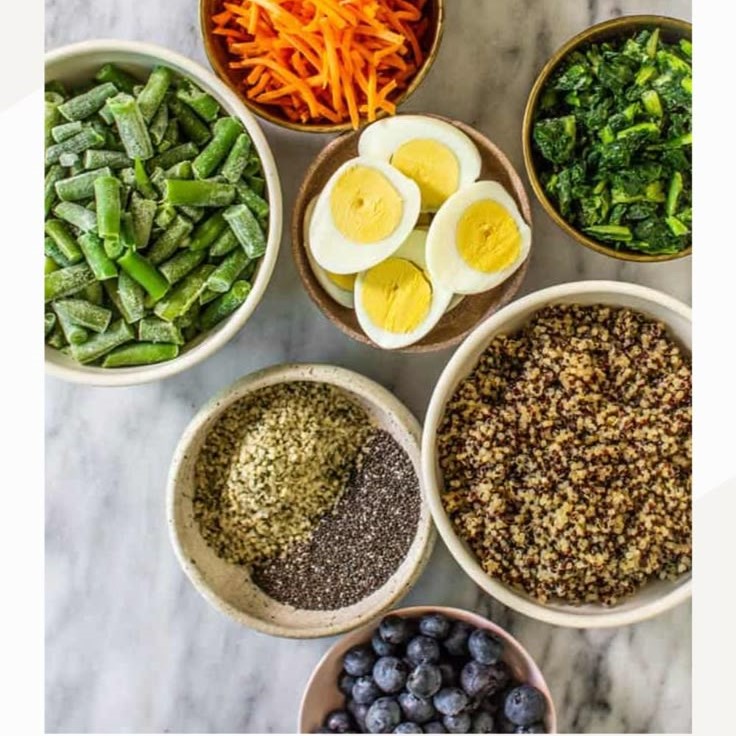
You should focus on lean proteins, low-fat options, and easily digestible ingredients. Avoid foods that can trigger inflammation or worsen symptoms. Always consult your vet before making any major changes to your dog’s diet.
With the right food choices, you can support your dog’s health and make what to feed a dog with inflammatory bowel disease a manageable task. Take time to understand your dog’s needs and choose meals that promote healing and comfort.
By being proactive and informed, you can help your dog live a happy and healthy life despite this condition. Remember, your care and attention play a huge role in their recovery and well-being.

